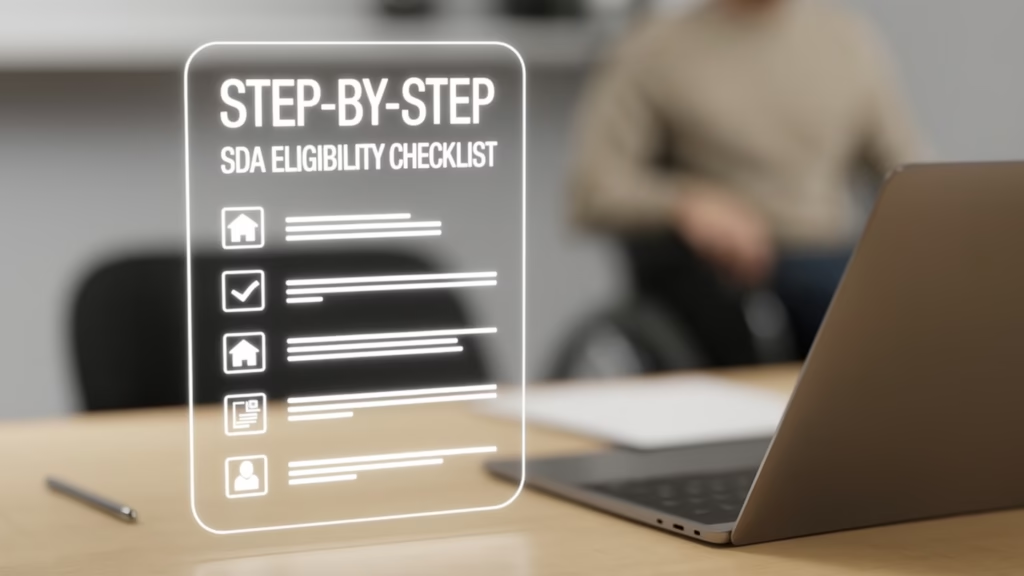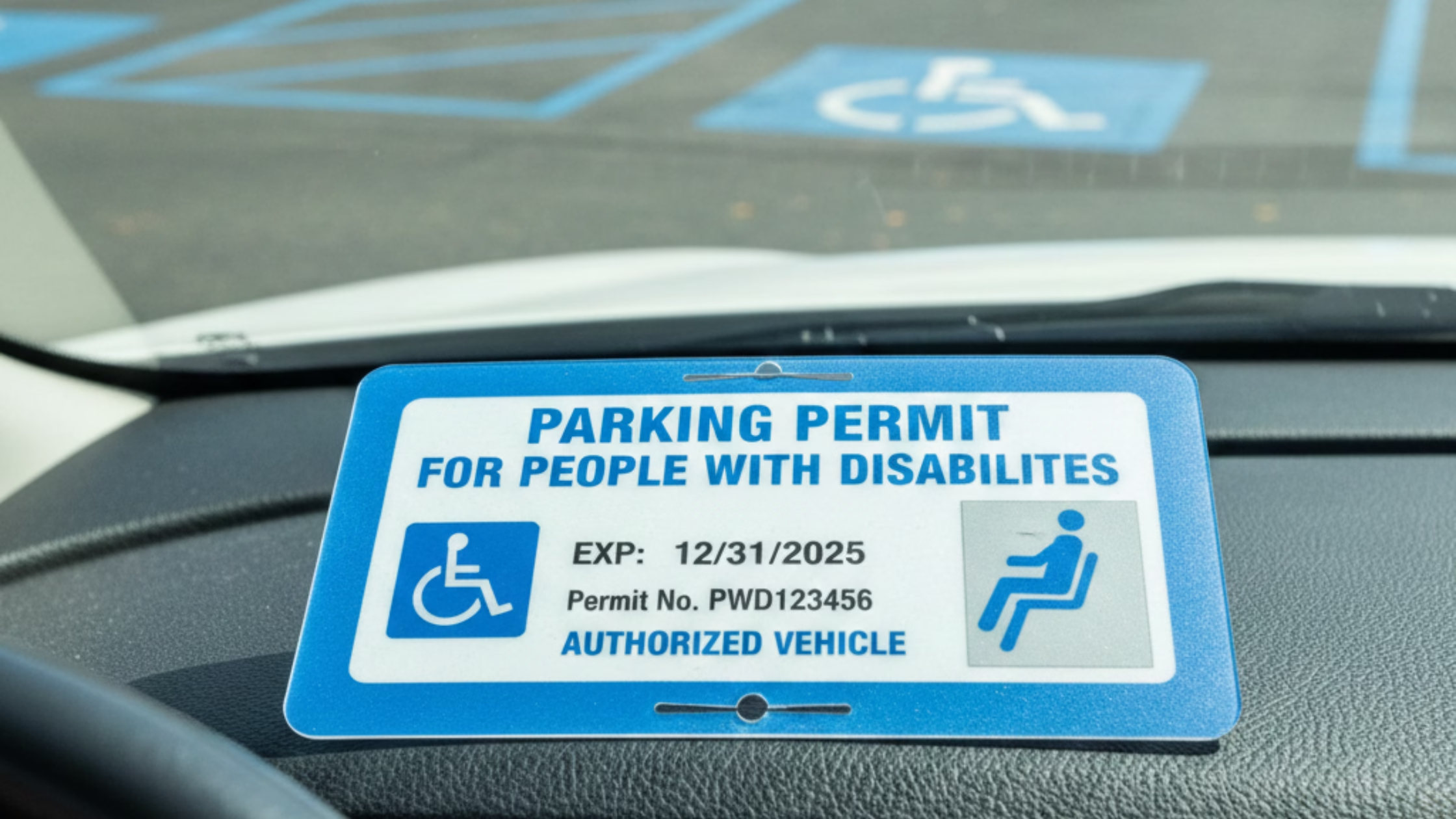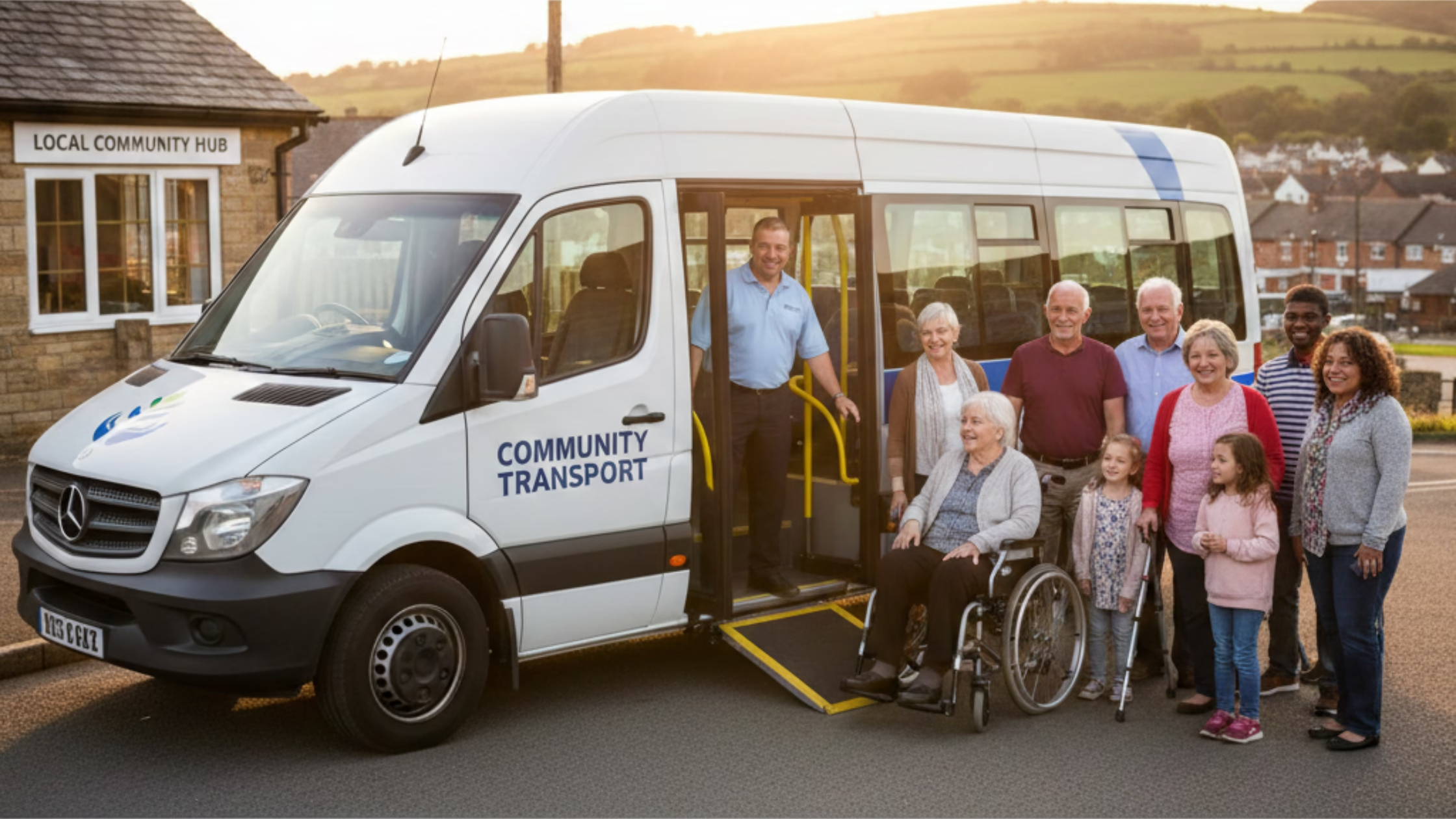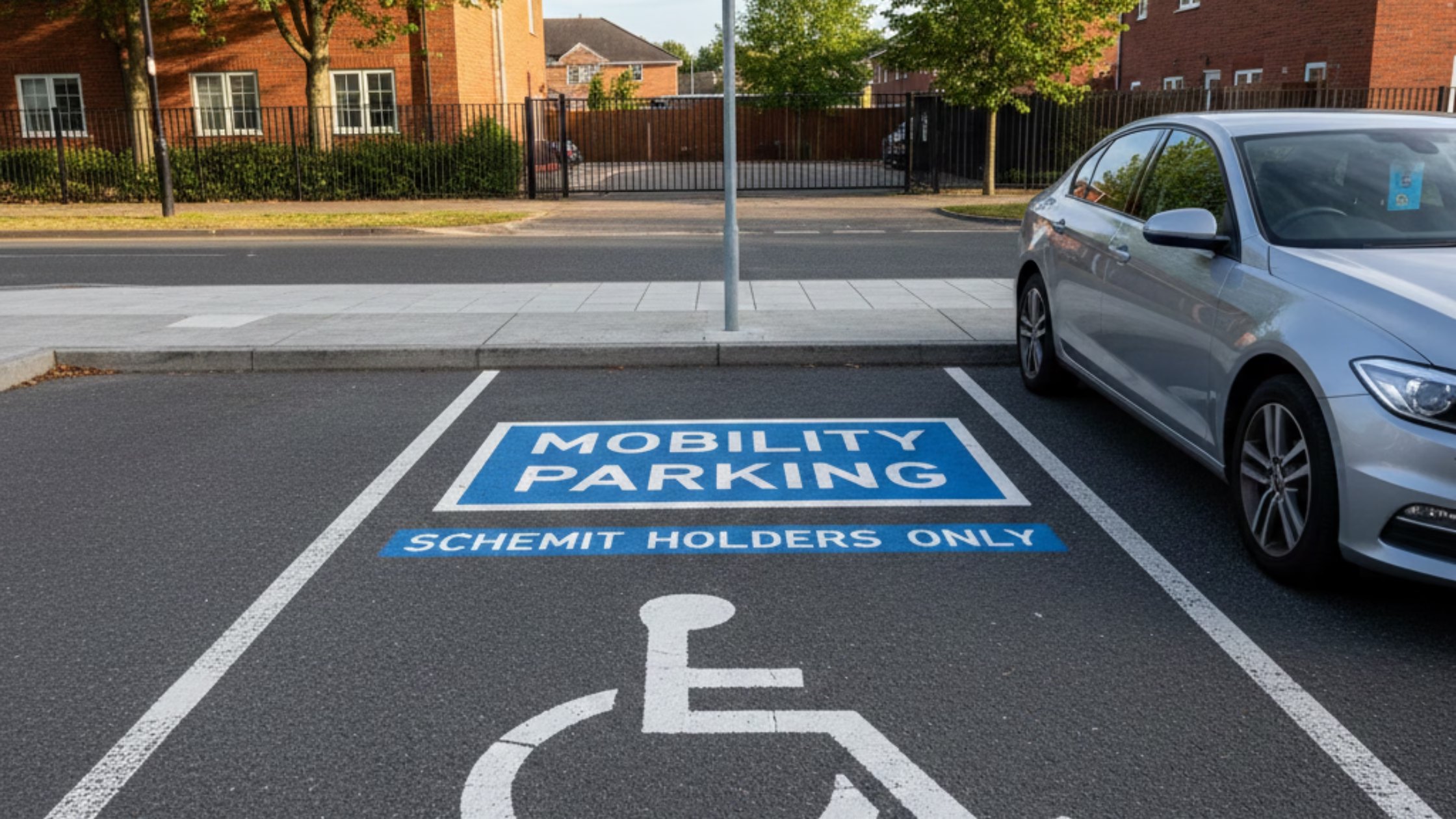Finding the right place to live can be tricky, especially when you need extra support. But what if you could find a home designed just for your needs? Specialist Disability Accommodation (SDA) could be the key to a more independent and comfortable life.
This guide will walk you through everything you need to know about SDA eligibility in 2025. We’ll make it simple and straightforward so you can easily figure out if this life-changing housing option is right for you.
Let’s start your journey to a new home.
What Is Specialist Disability Accommodation (SDA)?
Specialist disability accommodation refers to purpose-built housing created specifically for NDIS participants who have extreme functional impairments or require very high levels of support. Unlike regular housing, SDA properties feature specialised design elements that make daily living safer, more accessible, and more independent for people with significant disabilities.
These homes aren’t just modified regular houses – they’re built from the ground up with accessibility in mind. Features typically include:
- wider doorways for wheelchair access
- ceiling-mounted hoists for safe transfers
- specialised bathroom facilities
- emergency communication systems, and
- advanced home automation technology
The goal is to create an environment where other supports can be delivered more effectively while maximising your independence.
Specialist disability accommodation NDIS funding covers the cost of these specialised housing features, not the day-to-day support services you might receive. It’s important to understand that SDA focuses on the physical accommodation itself – the “where you live” rather than the “how you’re supported.”
How do you qualify for SDA?
Qualifying for SDA isn’t automatic, even if you’re an NDIS participant. The eligibility criteria are quite specific because SDA represents a significant investment in specialised housing. Individuals eligible for SDA must have extreme functional impairment or very high support needs. And more importantly, they must also satisfy both the specialist disability accommodation requirements and NDIS funding criteria.
To be considered for specialist disability accommodation rules, you must demonstrate that your disability significantly impacts your daily functioning and that you require housing features that go beyond what standard accessible housing can provide. The NDIS looks at your specific circumstances to determine whether SDA is reasonable and necessary for you to achieve your goals.
The assessment process involves a detailed evaluation of your functional capacity, support needs, and how specialised housing features would help you live more independently or safely. It’s not just about having a disability – it’s about proving that standard housing, even with modifications, wouldn’t adequately meet your needs.

Step-by-Step Eligibility Checklist
Use this comprehensive checklist to assess your SDA eligibility:
Step1: Basic Requirements:
✓ You must be an active NDIS participant
✓ You must be aged 7 years or older (no upper age limit)
✓ You must be an Australian citizen, permanent resident, or holder of a protected special category visa
✓ You must have a permanent disability that is expected to last for at least two years
Step2: Functional Requirements:
✓ You need to have an extreme functional impairment or very high support needs
✓ Your disability significantly affects your ability to participate in everyday activities
✓ You require specialised housing features to live safely or more independently
✓ Standard accessible housing wouldn’t adequately meet your needs
Step3: Documentation Needed:
✓ Current NDIS plan
✓ Completed SDA application form
✓ Independent specialist assessment report
✓ Medical reports supporting your need for specialised accommodation
✓ Evidence of your specific housing requirements
✓ Assessment by an NDIS-registered specialist using the official eligibility checklist
Step4: Housing Needs Assessment:
✓ Clear evidence of the specific design category required (e.g., robust, fully accessible, high physical support, or improved liveability)
✓ Demonstration that these features are necessary for your safety or independence
✓ Evidence that less specialised housing options have been considered and deemed inadequate
To meet the SDA eligibility criteria for 2025, participants must qualify for the eligibility assessment and provide complete information about their daily needs, disabilities, and specific requirements for living in SDA homes.
Common Misconceptions About SDA Eligibility
Many people misunderstand SDA eligibility, leading to disappointment or missed opportunities. Let’s clear up the most common misconceptions:
| Myth | Reality |
|---|---|
| “Having an NDIS plan automatically makes me eligible for SDA” | Only about 6% of NDIS participants are eligible for SDA. Having an NDIS plan is just the first step – you must meet specific criteria related to extreme functional impairment. |
| “SDA and SIL are the same thing” | This is where SIL vs SDA becomes crucial to understand. Supported Independent Living focuses on HOW you live, while Specialist Disability Accommodation refers to WHERE you live. SDA funds the specialised housing features, while SIL funds the daily support services you receive. |
| “I can choose any SDA property I want” | Your SDA must match your assessed needs and the design category approved in your plan. You can’t access high physical support features if you’re approved for improved liveability level accommodation. |
| “Age doesn’t matter for SDA eligibility” | While there’s no upper age limit, you must be at least 7 years old to be eligible. For children, additional considerations apply regarding their developmental needs and family circumstances. |
| “SDA covers all my housing costs” | SDA covers the specialised accommodation costs, but you’re still responsible for reasonable rent contribution, utilities, and everyday living expenses. |
What to Do If You’re Not Eligible
If you don’t currently meet the Specialist Disability Accommodation Eligibility requirements, don’t lose hope. There are several alternative pathways to explore:
Explore Other NDIS Housing Options:
- Ndis Supported Independent Living (SIL) in mainstream housing
- Individual Living Options (ILO) for more personalised support
- Home modifications funding to adapt your current residence
- Assistive technology to improve accessibility
Consider Future Eligibility:
Your circumstances may change over time. If your support needs increase or your condition progresses, you might become eligible for SDA in the future. Keep documenting your needs and discuss this possibility during your plan reviews.
Appeal the Decision:
If you believe the decision was incorrect, you have the right to request an internal review or contact the Administrative Appeals Tribunal. Gather additional evidence and consider getting a second opinion from another registered specialist.
Work with Housing Specialists:
Connect with NDIS SDA housing specialists or Local Area Coordinators who can help you explore all available options. They can provide guidance on alternative pathways and help you prepare for future SDA applications if your needs change.



